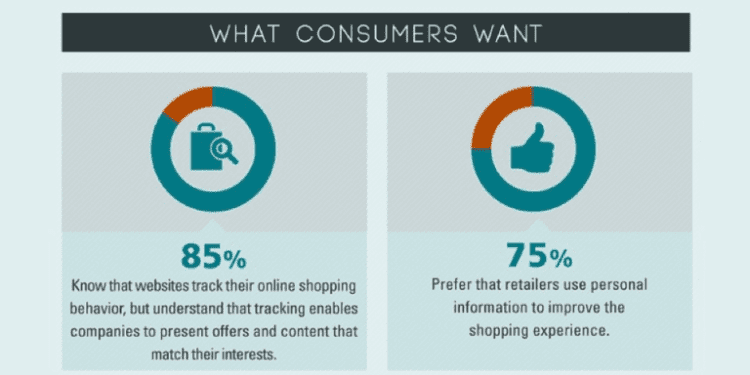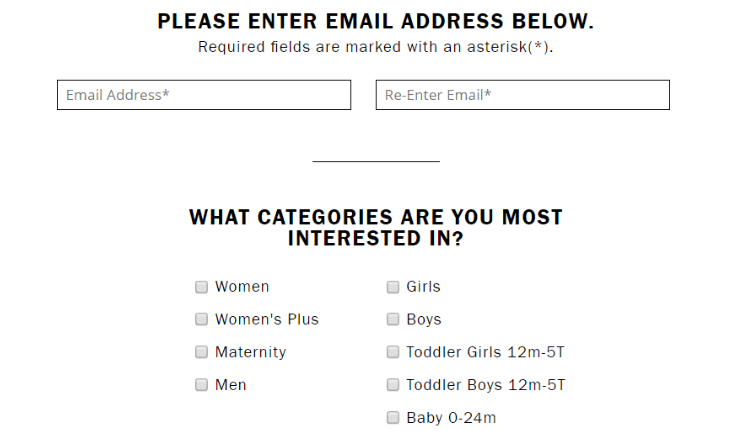How Marketing Automation Can Help Grow your eCommerce Business
Digital Marketing has grown in complexity over the years thanks to increasing competition and the growth in the number of marketing channels. Yet even as some companies struggle to master their digital strategies, the sheer complexity of modern digital marketing has virtually mandated the use of automation.
The case for marketing automation has become increasingly clear. Studies have shown that businesses automating the process generally see an average increase of 14.5% in sales productivity while experiencing a 12.2% reduction in marketing overhead.
Although most eCommerce businesses automate their marketing efforts to increase lead generation, there are other benefits as well.
Marketing Automation Helps Grow Revenue Faster and Smarter
One of the brightest points of technology is that it enterprise marketing automation help us save time and money. This can be seen in the overall figures we saw from users already using automated marketing stated above. However, for larger businesses that seek to create a more holistic marketing strategy, there are more in-depth advantages.
One of the core elements commonly found in automated marketing systems is the ability to make effective use of data. To illustrate this point, let’s take the example of HostScore, which helps businesses gauge the performance of web hosting service providers.
By tracking data from dozens of websites around the world, HostScore measures not just current values of specific data but also maintains a history of reliability. This use of data results in more useful information.
Similarly, automated marketing systems work with data in multiple ways which can usually be customized to fit the needs of individual businesses. Other advantages in digital marketing automation for small business include:
Lead Nurturing
Although many companies who engage in marketing have the means to increase lead generation, only half the leads generated are ready to buy. Of those, as many as 80% won’t translate into a sale. By automating the marketing process, companies can more effectively follow up on leads that are generated.
To help in this, many advanced digital marketing automation for small business solutions will include multiple tools that can help qualify and convert leads—not just more effectively but more quickly as well. Reports have indicated that lead nurturing using enterprise marketing automation has generated not just more qualified leads but those which make larger purchases as well.
Enhanced Customer Engagement
An SAP Country Manager recently commented that the business of today must cater to the customer size of one. This means that instead of a one-size-fits-all solution, marketing needs to be agile enough to engage with increasingly savvy customers.

Thanks to the effective data handling that automated marketing systems have, they are able to increase customer engagement through high degrees of personalization. This results in extremely effective content and messaging – effectively treating each customer as unique.
Studies have shown that 94% of marketers say personalization is a key strategy for improving lead generation quality. Thus, increase the conversion rate much better than traditional approaches.
Customer Segmentation
Reverting to the common theme of the use of data, eCommerce businesses can leverage on that to customize content for extremely specific segments of customers. This in effect makes use of a bird’s eye view of captured data to help the system front-load nurturing campaigns.

Instead of targeting vague fields such as simply job title or gender, an automated marketing system can be fine-tuned to the extent of quickly gathering subsets of customers with multiple parameters. As a result of this, you can send customized emails to groups matching job title, location, industry, purchasing history, and more.
This helps an eCommerce ensure that it is reaching out to the right customers and even at the right times with a message that is consistent and effective for their unique needs.
Increased Measurability
Where the average marketing campaign will focus on lead generation and product reports accordingly. Advanced ecommerce marketing automation solutions often provide more effective data. This includes lead scoring which helps marketers tell when leads that have been nurtured are ready to buy.
The process can be fine-tuned to fit each company’s process and a combination of sales and marketing input can help in adjusting the system.
Improving Campaign Targeting
Targeted campaigns yield a much higher ROI: in comparing segmented with non-segmented campaigns, stats show that segmented campaigns not only provided a 34.7% higher open rate, but they offered 26.5% more orders than non-segmented campaigns.
Making the Case for Omnichannel
Due to its technology-reliant nature, automated marketing also has the capacity and capabilities to help businesses expand omnichannel. By expanding marketing efforts to multiple channels, businesses can expect to see as much as a 90% higher customer retention rate over single-channel marketing platforms.
Most advanced ecommerce marketing automation systems can cover many channels at the same time and in various formats and mediums. Examples of these include email marketing, social media campaigns, web presence, and more.
These capabilities make the use of an internet marketing automation system in eCommerce is suitable for both B2B and B2C businesses alike.
Opt for Unified Platforms
As you can see, there are many elements that combine to make up the potential for successful digital marketing. The fact that automation can boost capabilities beyond expectation is key—so why not search for the key in a unified platform?
These feature-packed applications usually help you automate key functionalities and come with everything you need to take things a step further. Aside from primary eCommerce facilities, you can also leverage on areas like sales tools, enhanced security, built-in SEO optimization, and performance enhancements—all from one dashboard.
Conclusion: Automation is Worth the Investment
Many eCommerce business owners polled agreed that internet marketing automation is an area which they would like to explore. Because of the multiple benefits we’re discussed in this article, other barriers to adoption are the primary limitation, rather than issues with marketing automation itself.
Among these barriers that need to be addressed are the saturation of the market with multiple single-function applications, lack of experienced in-house talent, and perhaps even a shortage of relevant content necessary to achieve targeted goals.
Unified platforms like CS-Cart can go a long way towards streamlining your eCommerce business and giving you much-needed capabilities to boost sales, 24/7. The key is to actively decide on engagement and getting started on the journey.
 |
Jason Chow is an Outreach Manager and marketer for Webrevenue.io, where we provide content and marketing for startups and online businesses. |
Yan Anderson is the Head of Content Marketing at CS-Cart with over 10 years of experience in the eCommerce industry. He's passionate about explaining complicated things in simple terms. Yan has expertise in building, running and growing eCommerce marketplaces. He loves to educate people about best practices, new technologies, and trends in the global eCommerce industry.

